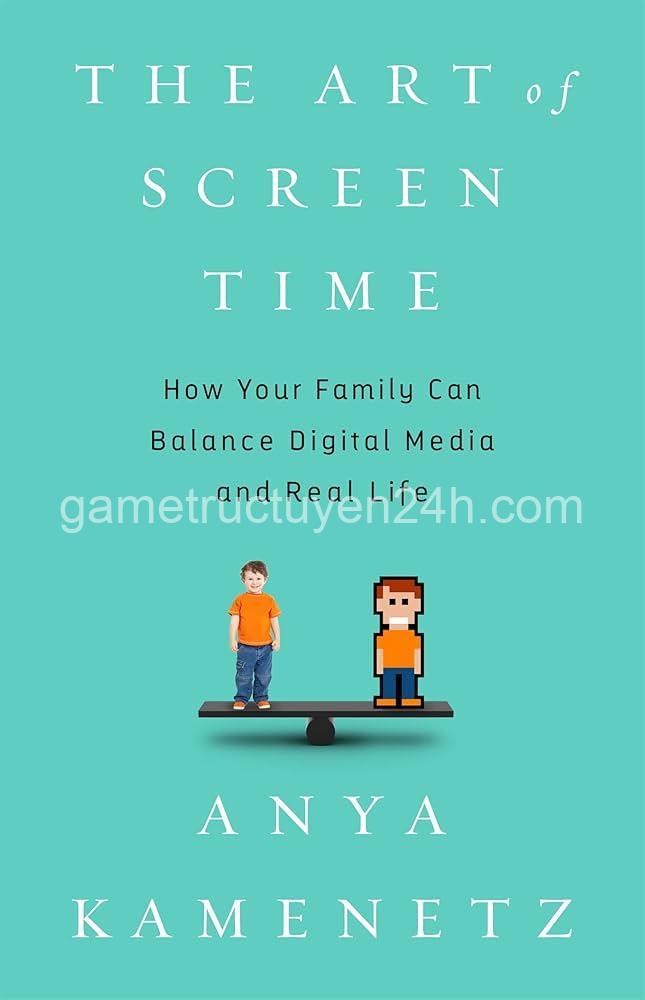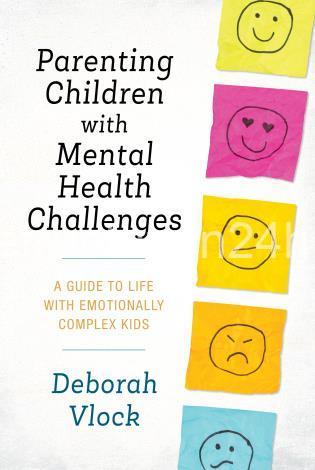Self-Care Books for Kids: Choosing the Right Ones for Your Child. In today’s article, gametructuyen24h.com will explore with you in the most detailed and complete way. See now!
Understanding Self-Care in Children’s Literature
Self-care is all about taking care of yourself, both physically and emotionally. It might mean getting enough sleep, eating healthy food, or finding ways to relax and manage stress. For children, self-care can be a little different, but just as important. It’s about recognizing their feelings, learning to express them in healthy ways, and developing tools to cope with everyday challenges.
Think about it this way: When a child knows how to calm themselves down when they feel overwhelmed, they’re practicing self-care. When a child understands how to take a break from a frustrating activity, they’re practicing self-care. When a child chooses to be kind to themselves and celebrate their strengths, they’re practicing self-care.
And this is where children’s books can play a vital role. They can help open up conversations about feelings, introduce coping mechanisms, and empower children to take charge of their well-being.
Why Self-Care Matters for Children:
Self-care isn’t just about feeling good; it’s about building a strong foundation for healthy development. When children learn to manage their emotions, build resilience, and practice mindfulness, they’re laying the groundwork for:
- Stronger Emotional Regulation: They’ll be better equipped to handle their feelings, cope with frustrations, and build positive relationships.
- Improved Mental Health: They’ll be less likely to experience anxiety and depression, and better equipped to manage stress.
- Increased Confidence and Self-Esteem: They’ll feel more empowered to navigate challenges, make choices that support their well-being, and believe in their own abilities.
- Better Social and Academic Success: They’ll be more engaged in school, have healthier peer relationships, and be better able to focus and learn.
Key Themes in Self-Care Books:
Self-care books address a wide range of topics, but there are some key themes that you’ll want to look for:
- Emotional Regulation: Books that focus on recognizing and expressing emotions in healthy ways. These books might teach children about different feelings, provide vocabulary for naming emotions, and offer strategies for coping with anger, sadness, and frustration.
- Physical Well-being: Books that emphasize the importance of healthy habits like sleep, exercise, and nutrition. These books might encourage children to develop bedtime routines, participate in active play, and make healthy food choices.
- Mindfulness and Relaxation: Books that introduce techniques like deep breathing, meditation, and grounding practices. These books help children learn to be present in the moment, calm their minds, and manage stress.
- Setting Boundaries and Saying “No”: Books that empower children to recognize their needs and communicate them effectively. These books teach children about assertiveness, respecting personal space, and managing peer pressure.

Finding the Right Self-Care Books for Your Child
Choosing the right self-care book for your child involves a bit of thoughtfulness. Here are some things to consider:
-
Consider Your Child’s Age and Development: You’ll want to make sure the book is age-appropriate in terms of language, themes, and complexity. For younger children, look for books with simple language, engaging illustrations, and a lighthearted tone. As children get older, they can handle more complex ideas and stories.
-
Look for Relatable Characters and Engaging Storylines: The best self-care books feature characters that children can relate to. The stories should be engaging and offer realistic solutions to common challenges. Look for books that reflect your child’s experiences and provide practical strategies.
-
Seek Books that Offer Practical Strategies and Coping Skills: The most helpful self-care books provide tools that children can use in their everyday lives. Look for books that offer actionable steps, like breathing exercises, mindfulness techniques, or ways to manage anxiety.
-
Look for Books that Promote Positive Self-Talk and Self-Compassion: Encourage children to be kind to themselves and celebrate their strengths. Look for books that emphasize self-acceptance and promote a positive self-image.
-
Consider the Book’s Illustrations and Overall Tone: Choose books with appealing visuals and a warm, encouraging tone. Books that have a cheerful and positive atmosphere will make the reading experience more enjoyable.
Beyond Books: Creating a Self-Care Culture at Home
Reading self-care books is a great start, but it’s important to create a broader culture of self-care at home. Here are some tips:
-
Talking About Self-Care: Make time to talk about feelings and well-being. Create a safe space for your child to share their emotions, both positive and negative. Help them understand that it’s okay to feel a range of emotions and that there are healthy ways to express them.
-
Modeling Self-Care: Children learn by watching, so be sure to model healthy self-care practices. Explain to your child why you’re taking breaks, engaging in relaxation techniques, or prioritizing your own well-being.
-
Creating Self-Care Rituals: Develop family routines that promote relaxation and well-being. This could include things like family meditation sessions, quiet time before bed, or healthy snack breaks.
Recommended Self-Care Books for Children
Here are a few recommendations for self-care books based on age groups:
Preschool and Early Elementary:
- The Very Hungry Caterpillar by Eric Carle: This classic story teaches children about the importance of patience and waiting for things to grow and change.
- I Can Do It! by Joanna Cole: A great book for boosting self-confidence and helping children believe in their own abilities.
Upper Elementary and Middle School:
- The Worrywarts by Erin Falligant: This book helps children understand that worries are normal and provides strategies for managing anxiety.
- Mindful Moments by Susan Verde: This book teaches children mindfulness techniques and provides a framework for being present in the moment.
Teenagers:
- Daring Greatly by Brené Brown: A powerful book for teens on the importance of vulnerability, courage, and self-acceptance.
- The Happiness Project by Gretchen Rubin: This book explores a year-long experiment in happiness and provides practical tips for living a more fulfilling life.
Additional Resources for Parents
For more information on self-care for children, visit these resources:
- Websites:
- https://gametructuyen24h.com/
- Child Mind Institute: https://childmind.org/
- The National Alliance on Mental Illness (NAMI): https://www.nami.org/
- Books:
- Raising Emotionally Intelligent Children by John Gottman
- The Whole-Brain Child by Daniel J. Siegel
- Mindful Parenting by Mark Williams
FAQs
How can I find books that are appropriate for my child’s age and developmental stage?
You can look for books that are labeled with age ranges on the cover or in the book description. You can also consider your child’s reading level and their interests. If you’re unsure, talk to a librarian or bookseller for recommendations.
What if my child doesn’t want to read about self-care?
Start by choosing books that appeal to your child’s interests. Focus on books with engaging storylines and relatable characters. You can also try reading the book aloud together and talking about the themes and characters.
What if my child struggles with the self-care practices suggested in the book?
Be patient and understanding. It takes time for children to learn new skills. Encourage them to try the practices in small steps and focus on their successes. You can also model the practices yourself to show them that self-care is important for everyone.
Conclusion
Choosing self-care books for your child is an investment in their emotional well-being and future success. By providing your child with the tools and knowledge they need to manage their feelings, build resilience, and prioritize their well-being, you’re setting them on a path to a happier and more fulfilling life.
- Joseph Robert Johnson is an animal lover and the owner of gametructuyen24h.com, a website dedicated to providing accurate and reliable information about animals.
- * gametructuyen24h.com * aims to help users find valuable information about raising pets and the best pet products.
- Leave a comment below and share your favorite self-care books for kids!
- Share this article with other parents who are looking to support their children’s emotional well-being.
- Visit gametructuyen24h.com for more helpful articles and resources.
EAVs:
- Book – Genre – Children’s Literature
- Book – Theme – Self-Care
- Book – Target Age – Preschool
- Book – Target Age – Elementary School
- Book – Target Age – Middle School
- Book – Target Age – Teenager
- Book – Character – Relatable
- Book – Story – Engaging
- Book – Message – Positive
- Book – Illustrations – Appealing
- Book – Tone – Encouraging
- Child – Age – Preschool
- Child – Age – Elementary School
- Child – Age – Middle School
- Child – Age – Teenager
- Child – Needs – Emotional Regulation
- Child – Needs – Stress Management
- Child – Needs – Mindfulness
- Child – Needs – Resilience
- Child – Needs – Healthy Habits
EREs:
- Book – Relates To – Child Development
- Book – Promotes – Emotional Wellbeing
- Book – Provides – Coping Skills
- Book – Encourages – Self-Compassion
- Book – Teaches – Stress Management
- Book – Develops – Mindfulness
- Book – Fosters – Resilience
- Book – Instills – Healthy Habits
- Parent – Seeks – Book Recommendations
- Parent – Wants – To Support Child
- Parent – Uses – Books To Teach Self-Care
- Child – Benefits From – Self-Care Practices
- Child – Develops – Emotional Intelligence
- Child – Learns – Stress Management Techniques
- Child – Practices – Mindfulness
- Child – Builds – Resilience
- Child – Adopts – Healthy Habits
- Self-Care – Contributes To – Overall Well-being
- Self-Care – Includes – Emotional Regulation
- Self-Care – Involves – Mindfulness
Semantic Triples:
- Book – Has Theme – Self-Care
- Parent – Wants – To Choose Self-Care Books
- Child – Benefits From – Self-Care Books
- Self-Care – Enhances – Emotional Wellbeing
- Self-Care – Improves – Resilience
- Book – Provides – Strategies for Stress Management
- Book – Promotes – Healthy Habits
- Book – Teaches – Mindfulness Techniques
- Book – Features – Relatable Characters
- Book – Has – Engaging Storyline
- Book – Has – Positive Message
- Child – Develops – Emotional Regulation Skills
- Child – Learns – To Manage Stress
- Child – Practices – Mindfulness
- Child – Builds – Resilience
- Child – Adopts – Healthy Habits
- Parent – Seeks – Age-Appropriate Books
- Book – Provides – Tools for Coping Skills
- Self-Care – Leads To – Improved Well-being
- Book – Encourages – Self-Compassion





